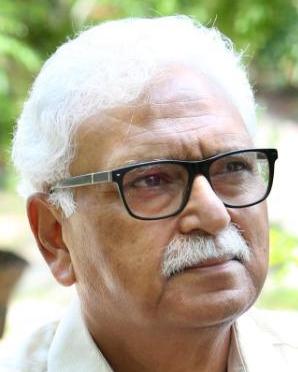

Judiciary is the last hope of the common man as well as the last bastion of a true democracy. It is the protector as well as the interpreter of the constitution. It is therefore important that the conduct of those at the top echelon of judiciary remains under close public scrutiny. And it must remain so in the interest of democracy.
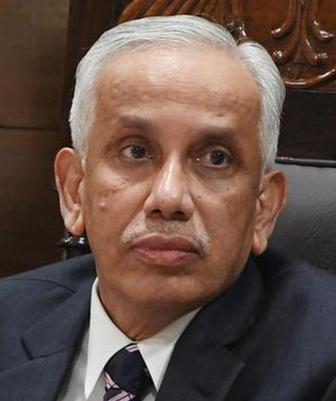
The appointment of former Supreme Court judge Abdul Nazeer, who was part of the constitution bench they decided the Ayodhya issue and also the bench that endorsed the controversial demonetisation, as the Governor of Andhra Pradesh, is the latest such appointment which has raised serious concerns.
Justice Nazeer is the third judge from the five member bench that gave the ruling in the Ayodhya title dispute case to receive a post-retirement appointment from the government.
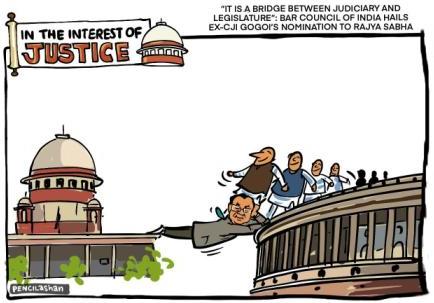 Former Chief Justice of India Ranjan Gogoi, who headed the bench in the Ayodhya case, was nominated to Rajya Sabha within months of his retirement while Justice Ashok Bhushan was appointed the Chairman of the National Company Law Appellate Tribunal shortly after his retirement.
Former Chief Justice of India Ranjan Gogoi, who headed the bench in the Ayodhya case, was nominated to Rajya Sabha within months of his retirement while Justice Ashok Bhushan was appointed the Chairman of the National Company Law Appellate Tribunal shortly after his retirement.
These judges might not have given judgments with the lure of a future office in mind but their acceptance of offices does give rise to the suspicion about them and their conduct.
Shakespeare in his famous play Julius Caesar said that Ceaser’s wife must not only be above suspicion, she should also appear to be above suspicion. It is true for an important institution like the judiciary and judges must not only be above suspicion they should also appear to be beyond suspicion.
Supporters of the present government might point out that such appointments had been made in the past too by non-bjp governments. There is no denying the fact that this has happened in the past too but two wrongs don’t make one right. There are bad precedents but these do not justify the recent decisions.
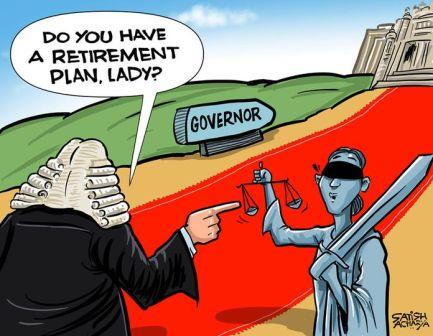 While Justice Nazeer’s appointment has attracted criticism, there had been widespread condemnation of the acceptance of a Rajya Sabha seat by Justice Gogoi. His professional personal conduct had been under a shadow.
While Justice Nazeer’s appointment has attracted criticism, there had been widespread condemnation of the acceptance of a Rajya Sabha seat by Justice Gogoi. His professional personal conduct had been under a shadow.
However after his acceptance of the nomination to Rajya Sabha Justice Gogoi had declared that he would like to contribute to the public cause through active participation in Rajya Sabha.
A recent report has exposed his stand. It shows that he has not asked even a single question since he took oath as the Rajya Sabha member. His attendance is also low at just about 30 per cent and he has not moved any Private Member’s Bill since his nomination about a year ago.
It is difficult to recall if he had participated in any debate in the House. Then why did he accept the nomination but to enjoy the perks like free accommodation, allowances and security. And also perhaps protection from prosecution.
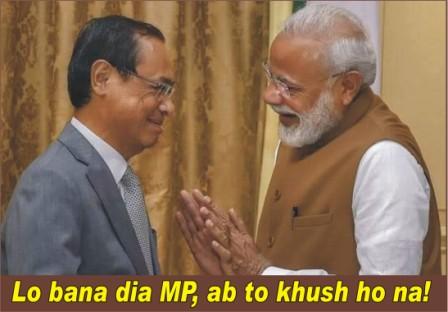 Justice Gogoi’s nomination to Rajya Sabha had come in for severe criticism due to the fact, which could also be a coincidence, that he had given a string of verdicts favouring the government during the last few months of his tenure as the chief justices of India.
Justice Gogoi’s nomination to Rajya Sabha had come in for severe criticism due to the fact, which could also be a coincidence, that he had given a string of verdicts favouring the government during the last few months of his tenure as the chief justices of India.
These included the Ramjanambhoomi-Babri Masjid case judgment, the Babri Masjid demolition case and the petition seeking an investigation into the purchase of 36 Rafale fighter aircraft.
In his defence he had said that all those judgements were delivered while sitting with other judges and it was “unfair to link” the judgments with his nomination.
He had said that “those who are criticising acceptance of nomination as quid pro quo must grant a better sense of proportion to a former CJI. If a former CJI wants quid pro quo, then he could seek bigger, lucrative posts with bigger emoluments and facilities and not a nomination to RS, where the pecuniary benefits are the same as that of a retired judge”.
Also Read: Appointment of Judges – First-hand experience
It must be noted that there is no law that prohibits any judge from taking any post retirement job. It is more a question of propriety and ethics. While some judges flatly refused to take up any government job after their retirement, some others accept such offers even while they are still in service.
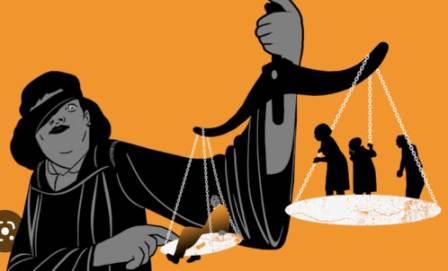 The major cause of concern is a sharp increase in the number of former judges accepting appointments and particularly those where the government makes the appointments directly without consulting or getting recommendations from the Chief Justices.
The major cause of concern is a sharp increase in the number of former judges accepting appointments and particularly those where the government makes the appointments directly without consulting or getting recommendations from the Chief Justices.
Unfortunately a study has pointed out that over 70 per cent of the judges take up jobs and assignments after their retirement.
There are certain posts, like Lokayuktas in states or judicial commissions, where it is mandatory to appoint only retired high court of Supreme Court judges. The controversial appointments are those which are seen as bestowing favour on judges who are considered compliant.
Also Read: Public spat between Govt and judiciary must end
The first Law Commission of India had, in its report, unanimously recommended that judges should not accept post-retirement jobs from the government, highlighting the potential effect on the independence of the judiciary.
However the recommendation had been flouted more often that being followed.
Also Read: “Dear Kind Judge Sahib”
The law needs to be amended to bring in a clause for a “cooling off period” before retired judges could be appointed to any position. Most legal luminaries think that a cooling off period of about two years would be good for all concerned including the reputation of the judiciary. ![]()
___________
Also Read:
TRUTH VS FALSEHOOD: BBC – Who is afraid?
Mughal Gardens – Name Changed, But Why?
Industrialization versus Environmental Degradation
Punjab – How a deadly cocktail of Agri-Water-Energy nexus going to destroy it?

Disclaimer : PunjabTodayTV.com and other platforms of the Punjab Today group strive to include views and opinions from across the entire spectrum, but by no means do we agree with everything we publish. Our efforts and editorial choices consistently underscore our authors’ right to the freedom of speech. However, it should be clear to all readers that individual authors are responsible for the information, ideas or opinions in their articles, and very often, these do not reflect the views of PunjabTodayTV.com or other platforms of the group. Punjab Today does not assume any responsibility or liability for the views of authors whose work appears here.
Punjab Today believes in serious, engaging, narrative journalism at a time when mainstream media houses seem to have given up on long-form writing and news television has blurred or altogether erased the lines between news and slapstick entertainment. We at Punjab Today believe that readers such as yourself appreciate cerebral journalism, and would like you to hold us against the best international industry standards. Brickbats are welcome even more than bouquets, though an occasional pat on the back is always encouraging. Good journalism can be a lifeline in these uncertain times worldwide. You can support us in myriad ways. To begin with, by spreading word about us and forwarding this reportage. Stay engaged.
— Team PT


Copyright © Punjab Today TV : All right Reserve 2016 - 2025 |